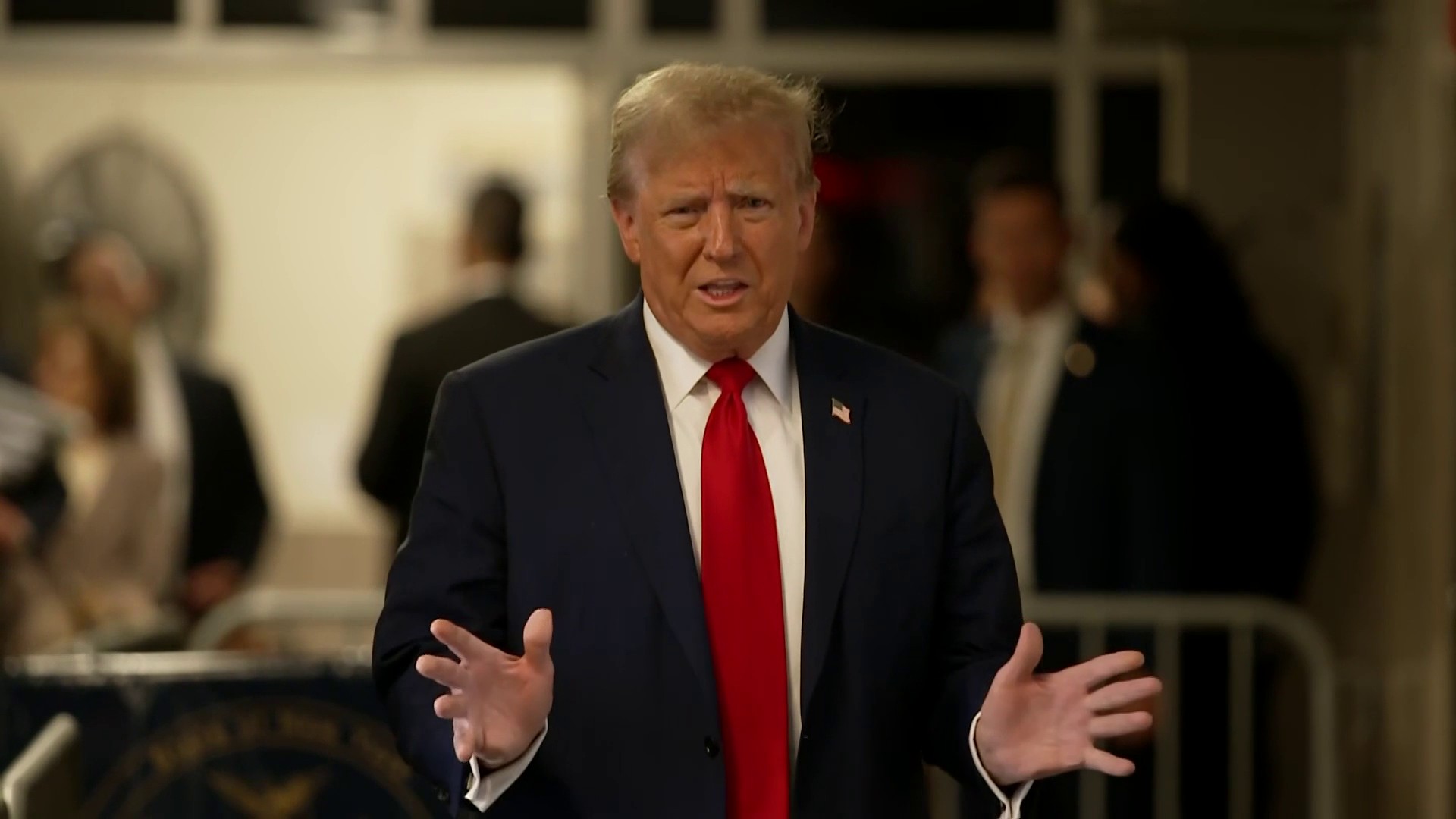What to Know
- Attorney General William Barr has ordered federal prosecutors across the U.S. to step up their efforts to combat anti-Semitic hate crimes
- He made the announcement Tuesday alongside a group of Jewish community leaders in Brooklyn
- Barr says he’s been “extremely distressed” by an uptick in violence in Jewish communities
Attorney General William Barr ordered federal prosecutors across the U.S. to step up their efforts to combat anti-Semitic hate crimes as he met with Jewish leaders in Brooklyn, New York, on Tuesday.
Barr said he has been “extremely distressed by the upsurge in violence” in Jewish communities, including in New York City, which saw a string of anti-Semitic attacks during the Hanukkah holiday.
The attorney general said the Trump administration would have “zero tolerance for this kind of violence.”
Get Tri-state area news and weather forecasts to your inbox. Sign up for NBC New York newsletters.
Barr's visit came a day after the 75th anniversary of the liberation of the Auschwitz-Birkenau death camp in Poland, where survivors warned of rising anti-Semitism worldwide. It also came on the same day as President Donald Trump unveiled a Middle East peace plan that called for the creation of a State of Palestine with its capital in east Jerusalem while recognizing Israeli sovereignty over major settlement blocs in the West Bank — something the Palestinians are unlikely to accept.
Barr directed U.S. attorneys' offices to ensure they have a specific point of contact to handle outreach to the Jewish community and someone responsible for reporting hate crimes.He said he was also working with FBI Director Christopher Wray to create a national plan to combat anti-Semitic violence, and he announced federal charges in Brooklyn against a woman who allegedly had slapped three Jewish women.
Local
Allen Fagin, executive vice president at the Orthodox Union, said Barr was met with a resoundingly grateful response from the local Jewish community representatives who attended.
“Not only a recognition of the problem and a resolve to bring the resources of the federal government to bear, but the very fact that he came to Brooklyn to do that and brought with him senior representatives of local law enforcement, I think conveyed a very powerful message,” said Fagin.
“I cannot tell you how much it means to us when you say our federal government will have zero tolerance towards hate," Rabbi David Niederman, who said three of his relatives were killed by Nazis during the Holocaust, told the attorney general.
Jewish communities in the New York City metro area have been on edge after a shooting rampage at a northern New Jersey market in December that killed sixand an attack at a Hanukkah celebration in Monsey that left five people stabbed.
In making clear the federal government would step in when necessary, Barr announced charges against 30-year-old Tiffany Harris, who made headlines in New York City after she was accused of slapping three people in one of a series of apparently anti-Semitic attacks reported throughout New York during Hanukkah. A federal criminal complaint details how Harris slapped the women and shouted expletives as she noted they were Jewish.
Her case drew headlines in New York City after she was released without bail and then arrested again a day later in connection with another assault. In the second case, police allege she slugged a woman in the face. She was later re-arrested for missing an appointment with social workers and held for a psychiatric evaluation. Harris' attorney did not immediately respond to a call seeking comment.
“This will not be an isolated case,” Barr told the religious leaders. “We will move aggressively if we see this kind of activity.”
Rich Donoghue, the U.S. attorney in Brooklyn, said the charges had been under seal for several weeks and pointed to the case as an example of the federal government’s low tolerance for anti-Semitic crime. He said federal officials would step in to prosecute cases amid a debate over New York’s new bail reform law.
“We are going to respond if we feel that the laws that they are putting in place do not sufficiently address the local needs,” Donoghue told The Associated Press.



